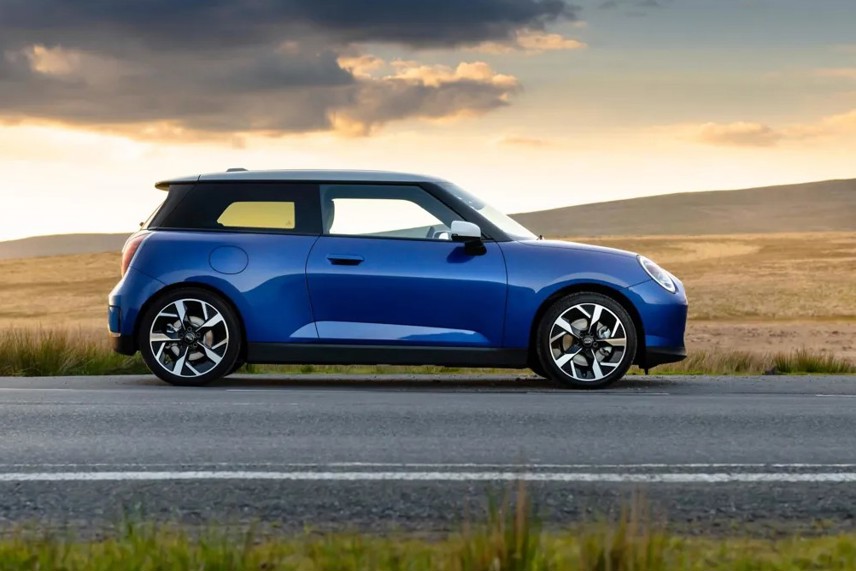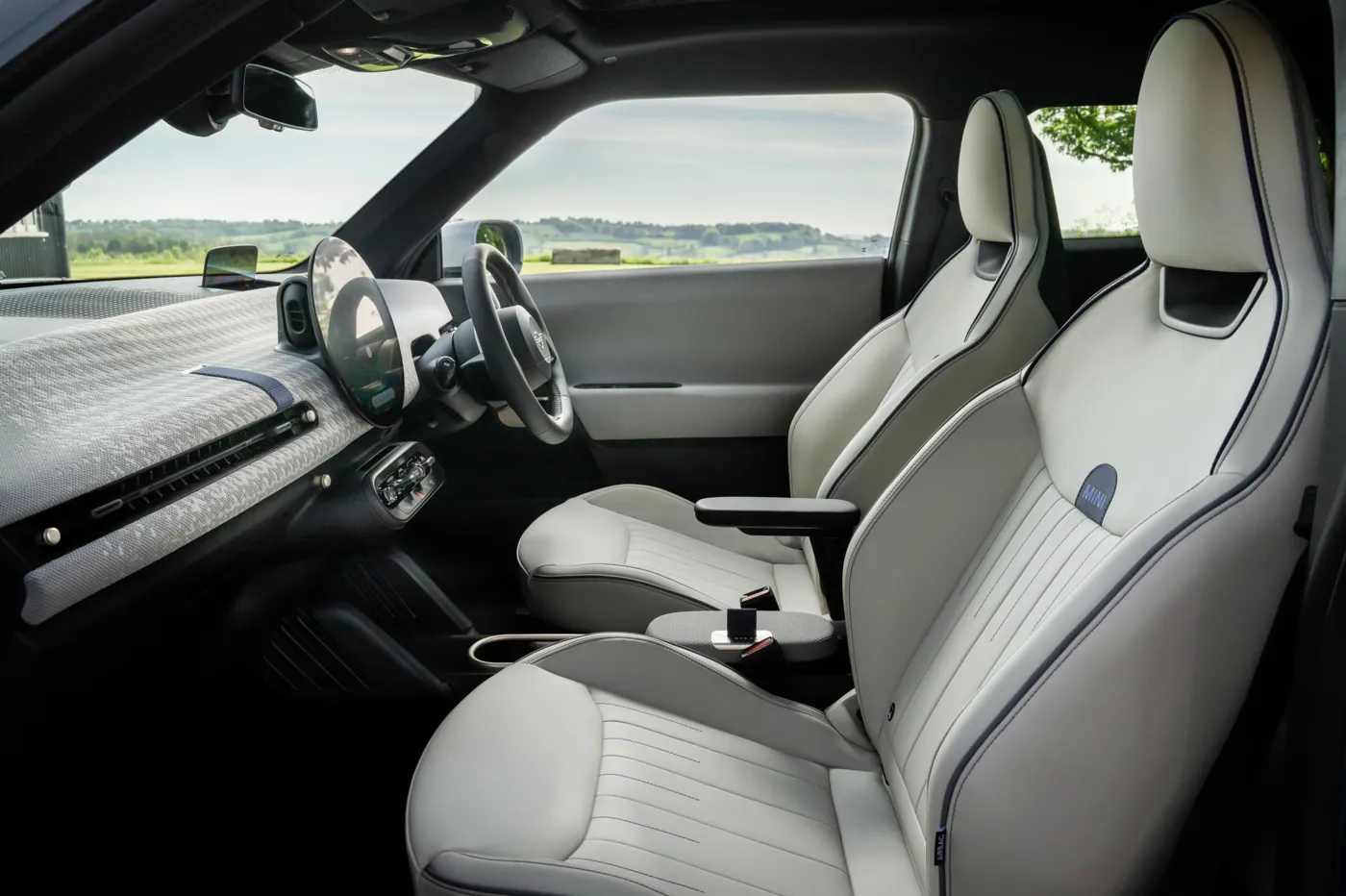Review
While it might not appear drastically different, the new Mini hatch has made significant improvements over its predecessor.
The previous generation Mini BEV had a poor real-world range, as only a limited size battery could fit into the floor.
For the fifth generation, Mini has developed a new platform that accommodates larger batteries, more powerful motors, and advanced technology. The result? Greater range and improved performance.
Depending which model a buyer chooses, they can easily take a cross-country jaunt from East Anglia to Wales and arrive with a smile on their face.
The Mini Cooper E is equipped with a 40.7 kWh battery, providing up to 190 miles of electric range (WLTP). Its 184PS electric motor, with 290Nm of torque, enables the car to accelerate from 0 to 62mph in 7.3 seconds.
On the other hand, the Cooper SE boasts a more powerful 218PS motor with 330Nm of torque, allowing it to sprint from 0 to 62mph in 6.7 seconds. The SE's larger 54.2 kWh battery extends its range to 250 miles.
During road tests by Matt DePrez, both cars achieved around 4.0 miles per kWh, translating to an estimated range of approximately 160 miles for the Cooper E and 210 miles for the Cooper SE.
Suspension differences between the E and SE mean that the SE offers a slightly better ride. Both models are firm yet agile, making the Mini Cooper Electric the best-handling model in its segment.
Refinement is high for a small car, with minimal wind or tyre noise, and the Mini feels stable and planted at higher speeds, making it well-suited for long-distance driving.
With its three-doors, it offers slightly less practicality compared to competitors like the Audi A1 or Toyota Yaris. However, the Mini compensates with a high-quality interior that feels both modern and premium. The dashboard features a textile covering, and the materials used throughout are robust and tactile. The minimalist layout enhances the interior's spacious and futuristic feel.
Starting prices for the Mini Cooper E Classic begin at £30,000, with Sport and Exclusive trims also available.
In keeping with Mini’s minimalist theme, on board technology is confined to a single central infotainment screen. The circular display provides all the infotainment functions, climate controls and acts as an instrument cluster, integrating the speedometer into the display. On the move, voice control proves a godsend.
Buyers choosing the Level 1 equipment package (£2,000 – or standard on Cooper SE) get a head-up display, heated front seats, folding door mirrors, comfort access and high beam assistant. It should be a must-have for buyers.
All Mini Cooper models come with parking sensors, rear-view camera, blind spot monitoring and lane keep assist.
Adaptive cruise control only comes on the range-topping Sport grade with the Level 3 equipment package. Lower-grade models with the Level 2 pack are set-up for the function but it needs to be activated via a subscription.
The Cooper SE, in Exclusive trim, requires an outlay of £36,645, which could seem hefty to some, however fleets will love it, as company car drivers will pay 2% benefit-in-kind tax.
Of course, not all buyers are ready for pure electric driving, and to broaden its appeal the Mini Cooper - now the overall brand for the three-door Mini - is offered with two petrol-engined options - a 115PS power car (the Cooper C) and a sportier 150PS alternative (the Cooper S).
Choosing petrol lowers the entry point significantly for Mini fans. The base-level Cooper C Classic is just £23,150, and even a Cooper S Exclusive is cheaper than the starting price of the electric Mini, at £29,750.
An award-winning journalist and editor, with two decades of experience covering the motor retail industry, and accredited by the Institute of Leadership and Management (ILM) plus the National Council for the Training of Journalist (NCTJ)
As editor of AM since 2016, Tim is responsible for its media content, planning and production across AM's multiple channels, including the website, digital reports, webinars, social media and the editorial content of AM's events, Automotive Management Live and the AM Awards. His focus is on interviewing senior leaders of franchised dealer groups and motor manufacturer national sales companies to examine latest developments in UK motor retail.


















